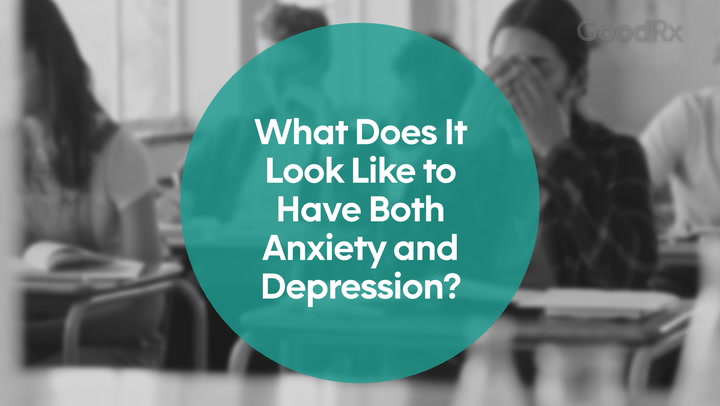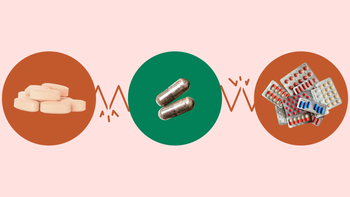
Choosing Between a Psychologist and a Psychiatrist? Here’s What to Know
Key takeaways:
Psychologists and psychiatrists are mental health professionals who can diagnose and treat a range of conditions.
Psychologists and psychiatrists have different education and training. This determines what kind of treatment they can provide.
Depending on your treatment needs, one may be better for you than the other. And some people work with both.
Almost 1 in 5 adults in the U.S. live with a mental health condition. If you’re one of them — or you think you may have a mental health condition — it can be difficult to know where to start.
There are many different types of mental health professionals. You may have come across terms like psychologist, therapist, and psychiatrist, among others. At first glance, these titles may seem similar, but there are several important differences.
What is a psychologist?
A psychologist is a mental health professional with a doctoral degree. This can be either a doctorate in philosophy or psychology (PhD and PsyD, respectively).
Search and compare options
There are also school psychologists, who have a doctoral degree in education (EdD) or an education specialist degree (Ed.S). They focus on supporting the mental health of students who may experience difficulties due to bullying, problems at home, or an undiagnosed learning disability.
After getting their degree, most psychologists then complete at least a year of supervised training in talk therapy. During their training, psychologists learn how to diagnose and treat different mental health conditions. They become experts in using talk therapy to help people cope with life stressors, anxiety, depression, and other mental health conditions and symptoms.
In complex cases, psychologists are trained to know when therapy should be combined with medical care from a psychiatrist.
What is a psychiatrist?
A psychiatrist is a medical doctor. This means they have gone to medical school and earned their medical degree — doctor of medicine (MD) or doctor of osteopathic medicine (DO). They then complete an additional 4 to 6 years (or more) of specialized psychiatry training.
In their medical training, psychiatrists learn how a healthy body works and what happens inside the body (and brain) when a person gets sick. They become experts in diagnosing and treating complex mental health conditions using medication, talk therapy, and other specialized treatments. They also learn how to check if a medical condition is causing or worsening mental health symptoms.
What is a therapist?
“Therapist” is a broad term that can apply to a wide range of health professionals trained in talk therapy. This includes psychiatrists, psychologists, social workers, and licensed mental health counselors, to name a few.
Read more like this
Explore these related articles, suggested for readers like you.
There are different types of therapy. Each therapist may use one or several types of therapy, depending on their training and your individual needs.
What are the key differences between a psychiatrist and a psychologist?
If you’re trying to choose the right mental health professional for you, it helps to understand the main differences between a psychologist and a psychiatrist. Their differences in training mean that they can offer different services.
Psychologists
Psychologists can provide the following services:
Mental health evaluation
Some psychologists — neuropsychologists — can also perform specialized tests to check how different areas of the brain are functioning.
A psychologist will primarily use talk therapy to help you learn about your mental health condition. They’ll help you learn healthy ways to cope with anxiety, depression, and other mental health symptoms. A psychologist may use one or more types of talk therapy during a session, depending on what may be most helpful to your unique situation.
If psychiatric medication is needed, your psychologist will refer you to a psychiatrist for a medication evaluation. This is because in most U.S. states a psychologist cannot prescribe medication.
Psychiatrists
Psychiatrists can provide the following services:
Mental health evaluation
A medical evaluation, which can include a physical exam and/or diagnostic tests
Prescription medication, like antidepressants
Medication management, like monitoring side effects and dosage adjustment
Specialized treatments, like electroconvulsive therapy (ECT) and transcranial magnetic stimulation (TMS)
Talk therapy
Since not all psychiatrists offer talk therapy, many people work with both a psychiatrist and a psychologist — or another therapist — for treatment.
Is it better to see a psychologist or a psychiatrist?
The answer to this question depends on your unique situation, and what type of mental health treatment you’re seeking.
You can see either a psychiatrist or psychologist if:
You want an initial mental health evaluation.
You’re interested in talk therapy. But, due to a growing psychiatrist shortage, some psychiatrists may be unable to provide frequent talk therapy. It’s best to check with the psychiatrist’s office about their availability.
A psychiatrist may be better for you if:
You’re interested in starting or changing your psychiatric medication.
You have complex mental health or medical conditions.
You want therapy and medication management from the same healthcare professional.
A psychologist may be better for you if:
You want to start therapy and don’t want psychiatric medication.
You want to start medication, but you’re more comfortable starting with your primary care physician (PCP). Often, if your symptoms are not severe, your PCP can safely prescribe psychiatric medication.
You may consider “split treatment” with a psychiatrist and a psychologist if:
You want both medication and therapy, but your psychiatrist doesn’t have availability for frequent therapy appointments.
You already have a psychologist or other therapist with whom you would like to continue therapy but are also interested in treatment with medication.
How do you find the mental health specialist you need?
There are many resources that can help you connect with a mental health specialist. Here are a few options to get you started:
Call your insurance company to get a list of mental health professionals who are covered by your insurance (also known as an “in-network provider”).
Request a referral from your PCP.
If you’re a student, contact your student health center for a list of mental health resources available on or off campus.
You can also search for resources and help with the National Alliance on Mental Illness (NAMI).
You can try FindTreatment.gov.
If you or someone you know is having thoughts of self-harm or suicide or is experiencing a mental health crisis, call or text 988 to access the Suicide & Crisis Lifeline. It’s a free and confidential service that’s available 24/7. You can also go to your closest emergency room for immediate assistance.
The bottom line
Timely mental health treatment can be lifesaving and life changing. Psychiatrists and psychologists are two mental health professionals you may come across while searching for mental health treatment.
If you’re unsure who you should see first, schedule an appointment with either professional. If the professional you meet with can’t provide the treatment you need, they can help refer you to someone who can. Oftentimes, psychiatrists and psychologists work together as part of a comprehensive mental health treatment team.
Why trust our experts?


References
American Psychiatric Association. (2023). What is psychotherapy?
American Psychiatric Association. (2023). What is electroconvulsive therapy (ECT)?
American Psychiatric Association. (2023). What is psychiatry?
American Psychological Association. (2023). What do practicing psychologists do?
National Institute of Mental Health. (2023). Mental illness.
For additional resources or to connect with mental health services in your area, call SAMHSA’s National Helpline at 1-800-662-4357. For immediate assistance, call the National Suicide Prevention Lifeline at 988, or text HOME to 741-741 to reach the Crisis Text Line.





























